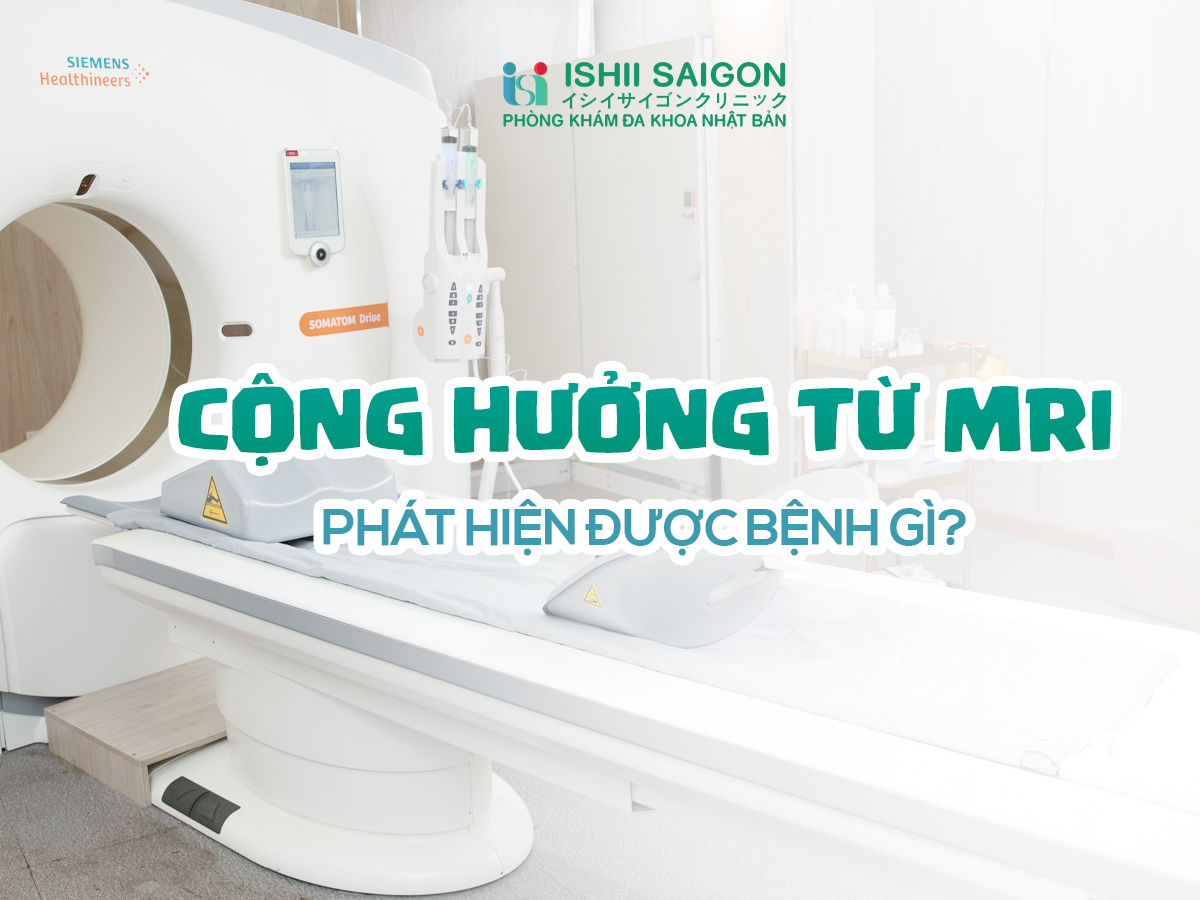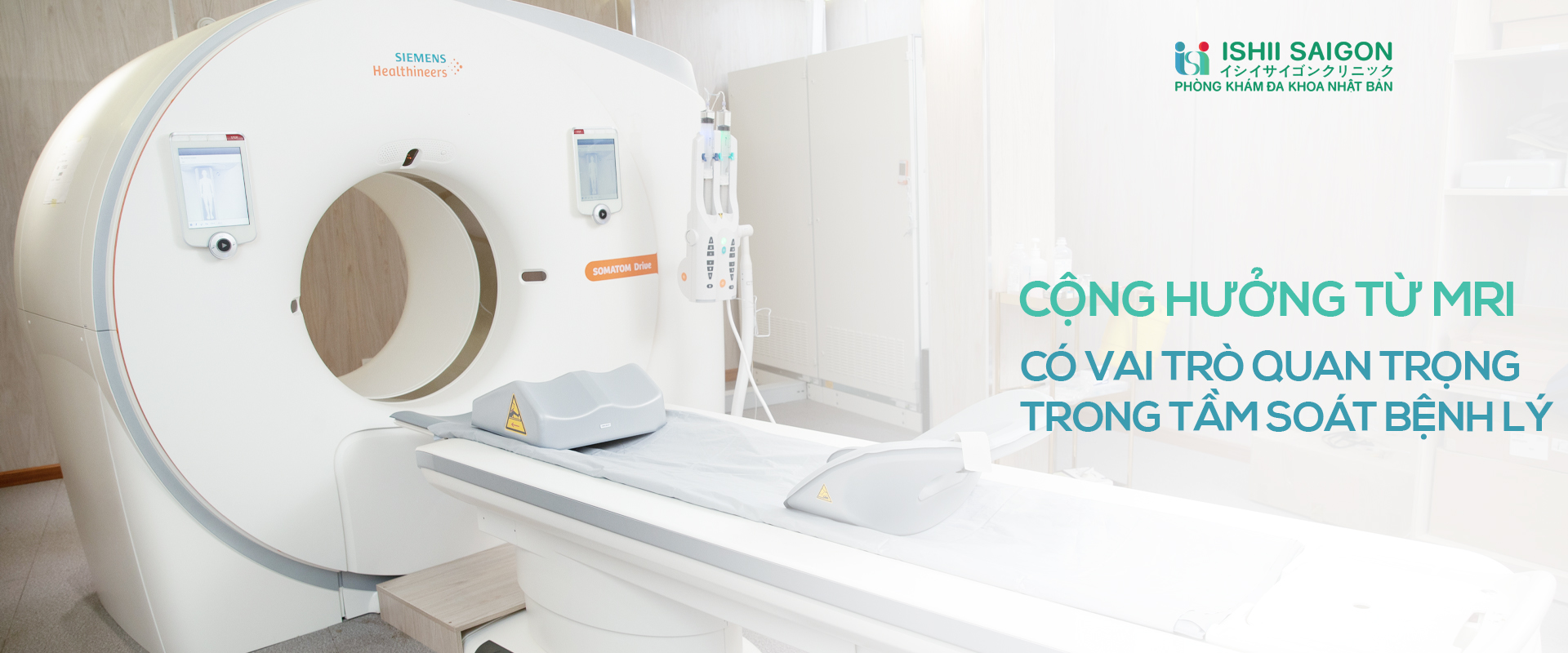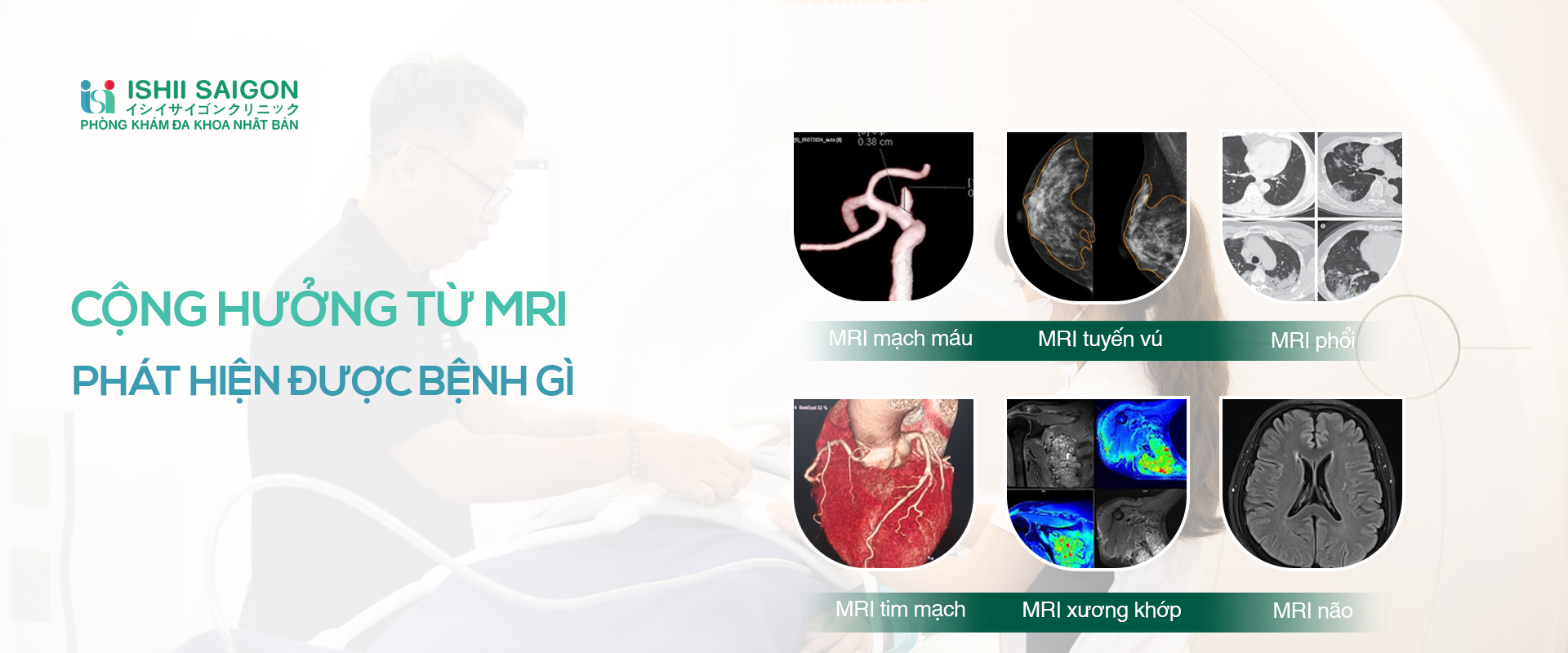
Introduction to MRI and Its Role in Disease Diagnosis
Magnetic Resonance Imaging (MRI) is a non-invasive diagnostic imaging method that provides detailed and accurate images of tissues and organs in the body. MRI uses magnetic fields to create 3D images, allowing doctors to easily observe and assess a patient's health condition without surgery or direct intervention. At Ishii Saigon Japanese Medical Clinic, we apply advanced MRI technology to detect dangerous diseases early, helping to optimize treatment effectiveness.

Principle of MRI Operation
MRI operates based on the principle of nuclear magnetic resonance, using a strong magnetic field and radio waves to stimulate hydrogen atoms in the body, generating signals that a computer can convert into detailed images. This method is particularly useful for displaying soft tissues (such as the brain, heart, and internal organs), which are often difficult to visualize clearly with X-rays or CT scans. This makes MRI an optimal choice for detecting and monitoring complex medical conditions.
What diseases can MRI detect?

- Brain MRI:
Brain MRI is commonly used to diagnose conditions related to the central nervous system. This method helps detect brain tumors, strokes, and neurological disorders such as Alzheimer’s and Parkinson’s disease. Additionally, MRI assists in accurately identifying the location of lesions or abnormalities in the brain, thereby supporting timely treatment and minimizing complications. - Cardiac MRI:
In cardiovascular diseases, MRI plays a crucial role in detecting issues such as coronary artery disease, valve regurgitation, and myocardial damage. Cardiac MRI allows doctors to observe the structure and function of the heart in detail while assessing the condition of the blood vessels, helping patients to identify risk factors early and manage their health effectively. - Spinal and Joint MRI:
For those suffering from persistent back, neck, or joint pain, spinal and joint MRI is the ideal method for detecting herniated discs, arthritis, and ligament injuries. The clear visualization of soft tissues helps MRI assist in accurate diagnosis and treatment, preventing long-term complications. - Abdominal MRI and Internal Organs:
MRI can help detect conditions in organs such as the liver, kidneys, pancreas, and gallbladder. For example, in diagnosing liver cancer or kidney stones, MRI provides clear images of the structure and condition of internal organs, allowing doctors to have a more comprehensive and accurate view compared to traditional methods. - Breast MRI:
Breast MRI is a common method for the early detection and monitoring of breast cancer, especially for women at high risk or those who have detected suspicious lumps through ultrasound. MRI has high sensitivity, helping to identify smaller lesions more clearly and supporting effective treatment methods. - Gynecological and Urological MRI:
MRI plays an important role in the detection and monitoring of gynecological conditions such as cervical and ovarian cancer, as well as conditions related to the prostate and bladder in men. With detailed and non-invasive imaging, MRI helps doctors assess the condition of lesions and develop optimal treatment plans for each patient.
How does the MRI scanning process work?
The MRI scanning process is quick and painless. The patient simply needs to lie still on the examination table, which will then automatically move into the machine. The scanning time typically ranges from 20 to 60 minutes, depending on the area being scanned and the level of detail required. Before the scan, patients will be instructed not to bring any metal objects and may be asked to wear special clothing to ensure safety.
When should an MRI scan be performed?
MRI scans are often recommended when patients experience unusual symptoms such as persistent headaches, dizziness, chest pain, back pain, or unexplained joint pain. Additionally, for those with a family history of serious illnesses, regular MRI scans help monitor health conditions and detect early signs of abnormalities.
Conclusion
MRI is a safe and effective diagnostic method that helps detect many dangerous conditions early, thereby improving treatment outcomes and minimizing the risk of complications. At Ishii Saigon Japanese Medical Clinic, we are committed to providing patients with high-quality, safe, and accurate MRI services. Take the initiative to protect your health and that of your loved ones by undergoing regular health check-ups with modern MRI technology.






